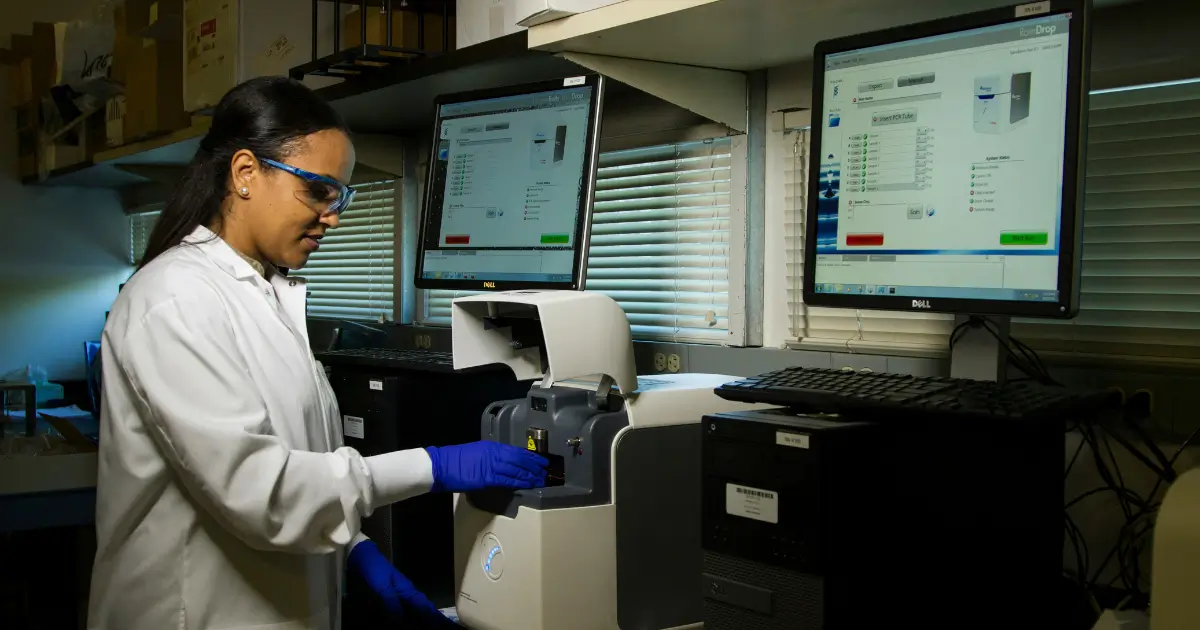The healthcare industry is undergoing a digital gold rush, fueled by the rise of digital health solutions. Data is the new currency, and healthcare organizations are scrambling to build high-velocity software teams that can unlock healthtech potential. But with a complex and ever-evolving tech stack, finding the right talent can feel like searching for a unicorn. This article equips you, the tech leader, with a roadmap to assembling A-Teams across various healthcare software development domains
Data is driving innovation, and healthcare organizations are building high-performance development teams to unlock the potential of healthtech. But with a complex tech stack, finding the right talent can be challenging. Let’s go ahead and study the most important technical and non-technical skills. Dive in!
Would You Rather Listen Instead?
We’ve dedicated a full podcast episode to discussing how to empower women in software engineering companies. Check it out!
Core Skills for Best-in-Class HealthTech
Beyond technical expertise, fostering a culture of collaboration, continuous learning, and a deep understanding of the healthcare domain are essential for building successful healthcare mobile and web apps. However, having the right technical firepower is mission-critical. Here’s a breakdown of the crucial skills needed for various healthcare software product types:
Healthcare Analytics and Data Management Tools

Healthcare analytics and data management tools are essential for extracting insights from vast amounts of healthcare data. This domain requires expertise in big data technologies and data visualization. Three specific skill sets are needed:
- Big Data: Expertise in big data technologies (e.g., Hadoop, Spark) and data warehousing is in high demand.
- Data Visualization: Skills in data visualization tools (e.g., Tableau, Power BI) are crucial for translating complex data into actionable insights.
- Data Science: A solid understanding of statistical analysis and machine learning allows teams to develop predictive models that can improve patient care and population health management.
Building a best-in-class healthcare analytics and data management tool requires a data-driven approach. Invest in talent with expertise in big data technologies and data science. Empower your team to develop tools that can glean valuable insights from healthcare data to improve patient outcomes and inform data-driven decision making across the healthcare ecosystem.
Electronic Health Records (EHR) Systems

EHR systems form the backbone of modern healthcare data. They require a unique blend of back-end expertise to ensure secure and scalable data storage, and deep understanding of healthcare data models to enable seamless information exchange.
- Integrations: Engineers must have expertise in enterprise application development, particularly with secure and scalable back-end technologies like Java, .NET, or Python. A deep understanding of HL7 FHIR standards and healthcare data models (e.g., SNOMED CT, LOINC) is crucial for ensuring interoperability.
- Pro Tip: Stay up-to-date on the latest FHIR standards to ensure your EHR systems are interoperable. A recent study suggests 84% of non-federal acute care settings have already adopted FHIR APIs.
Healthcare tech leaders should prioritize not just data security, but also user-friendliness for both clinicians and patients. Streamlining workflows and intuitive interfaces are key to user adoption and maximizing the value of EHR data.
Health Monitoring and Wearable Tech

Health monitoring and wearable tech is a rapidly growing field that allows for continuous patient monitoring and data collection. This rapidly growing field of mHealth allows for continuous patient monitoring and data collection through wearable devices, so expertise in mobile app development and sensor integration is essential for this domain. Keep an eye out for:
- Mobile Mavens: Expertise in mobile app development (iOS, Android), sensor integration, and low-power embedded systems is essential.
- Energy Saving: Bluetooth Low Energy (BLE) fluency is necessary for communication between wearables and smartphones.
- Tech Trend: The rise of internet of medical things (IoMT) devices will require healthcare IT teams to understand secure data collection and transmission from these devices.
Building health monitoring and wearable tech solutions users love requires a focus on data security and user privacy. Design your software with robust security measures to protect sensitive patient information. Additionally, prioritize user engagement by creating intuitive interfaces and functionalities that encourage patients to actively participate in their own health management.
Medical Imaging Software

Medical imaging software plays a crucial role in diagnosis and treatment planning. Expertise in medical image processing and computer graphics is essential for this domain.
- Image Mastery: Expertise in medical image processing libraries (e.g., ITK, VTK) and a strong foundation in computer graphics for rendering high-fidelity medical images are crucial.
- Emerging Tech: Deep learning is making waves in medical imaging analysis. Understanding these techniques can unlock new possibilities for medical diagnosis and treatment planning.
Product and engineering teams should harvest a deep understanding of medical imaging modalities and the ability to translate complex medical data into clear and actionable insights for clinicians. Furthermore, staying abreast of advancements in artificial intelligence and deep learning can empower your software to provide more accurate diagnoses and treatment recommendations.
Health Information Exchange (HIE) Solutions

HIE solutions facilitate secure data exchange across healthcare providers, fostering better collaboration and coordinated care. Security and data integrity are paramount for HIE systems, as they handle sensitive patient information.
Teams need expertise in integration technologies like APIs, message brokers, and experience with healthcare data security standards (e.g., HIPAA).
- IT – Healthcare Integration Growth: “As we move towards value-based care, secure and efficient HIE is essential,” says John Halamka, MD, co-chair of the AMA’s Health Information Technology Committee.
- Data Defendence: Data encryption and blockchain knowledgebecome valuable assets for ensuring data integrity and trust.
Healthcare tech leaders should prioritize robust data security measures and develop a governance framework that ensures all participants adhere to data privacy regulations. Additionally, fostering collaboration with disparate healthcare institutions is key to maximizing the value of HIE for improved patient outcomes.
Practice Management Systems

Practice management systems streamline administrative workflows for healthcare providers. These solutions require a blend of front-end and back-end development expertise. Things software teams should focus on:
- IT – Healthcare Integration Growth: “As we move towards value-based care, secure and efficient HIE is essential,” says John Halamka, MD, co-chair of the AMA’s Health Information Technology Committee.
- Data Defendence: Data encryption and blockchain knowledgebecome valuable assets for ensuring data integrity and trust.
- Full-Stack Force: Proficiency in full-stack development (front-end and back-end) and experience with building user-friendly and secure interfaces for both clinical and administrative workflows is key.
- Compliance Champions: Understanding of relevant healthcare regulations and compliance (e.g., HIPAA) is a plus.
Remember to prioritize user-friendliness and ensure the software adheres to all relevant healthcare regulations. Focus on intuitive interfaces that streamline administrative tasks and free up clinician time to focus on patient care.
Telemedicine Platforms

Telemedicine platforms revolutionize healthcare delivery by enabling remote consultations and patient monitoring. Unlike traditional web applications, telemedicine demands real-time responsiveness and secure video conferencing capabilities. Keep in mind:
- Video is Data: It goes without saying that proficiency in secure video conferencing solutions (e.g., WebRTC) and real-time messaging protocols is essential.
- Buzzworthy Tech: The rise of WebAssembly holds promise for running complex medical applications directly within a web browser, potentially improving accessibility for telemedicine platforms.
Valuable telemedicine platforms focus on user experience and real-time communication. Invest in high-quality video conferencing solutions and prioritize user interface design for both patients and healthcare providers.
Building Top Healthcare Software Teams
By prioritizing the skills outlined above and fostering a culture of collaboration, continuous learning, and a deep understanding of the healthcare domain, you can build an A-Team that will disrupt the industry and deliver real patient value.
Here are some additional tips:
- Embrace Continuous Learning: The healthcare technology landscape is constantly evolving. Invest in training and development programs to ensure your team stays ahead of the curve.
- Promote Collaboration: Break down silos and encourage collaboration between engineers, clinicians, and data scientists. This cross-functional approach fosters innovation and ensures your software solutions meet the real needs of the healthcare ecosystem.
- Hire for Passion: Look for candidates who are passionate about improving healthcare through technology. Technical skills can be learned, but genuine enthusiasm and a commitment to making a difference are invaluable assets.

To build a successful healthtech software team, foster collaboration, continuous learning, and passion for healthcare and well-being. Photo by Kaleidico.
Ready to take your healthcare software team to the next level? Start by assessing your current talent gaps and crafting a targeted recruitment strategy. Or drop us a line below, Ubiminds is happy to help.
Building a high-performing healthcare IT team requires a strategic approach that goes beyond technical expertise. By cultivating a culture of collaboration, continuous learning, and a deep understanding of the healthcare domain, you can empower your team to develop innovative solutions that improve patient outcomes and transform the future of healthcare.

International Marketing Leader, specialized in tech. Proud to have built marketing and business generation structures for some of the fastest-growing SaaS companies on both sides of the Atlantic (UK, DACH, Iberia, LatAm, and NorthAm). Big fan of motherhood, world music, marketing, and backpacking. A little bit nerdy too!


